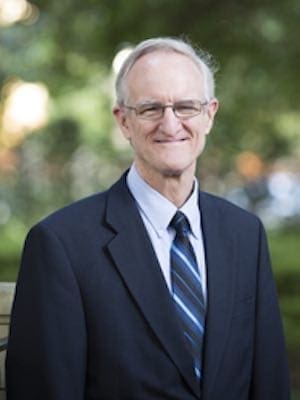“We are the New Testament church. John Wesley founded the Methodists, John Calvin the Presbyterians, Alexander Campbell the Disciples of Christ, but Baptists have no founder. We go back to Jesus who was baptized by John the Baptist.”
Many Baptists shouted this mantra in the 19th century, especially those heavily influenced by Landmarkism. Some still do. The claim is of course contradicted by historical evidence, but it conveniently served Baptists during an era of intense denominational competition on the frontier. Baptists contended that they were not Protestants and were thus superior to those modern reformers trying to “restore” the New Testament church.
In the late 18th and 19th centuries, several “restoration movements” were born in American Christianity in an attempt to complete the reformation of the church. The goal was to restore the pattern (doctrines and practices) of the New Testament church in its original purity.
Barton Stone and Alexander Campbell led the most influential restoration movements. Stone led the “Christian movement” that was born during the Great Revival on the frontier (Second Great Awakening) in the early 1800s. Campbell’s popularity soon followed; he originally associated with Baptists, but Baptist leaders began denouncing his ideas. Still, many frontier Baptists joined the Campbell movement. In the 1830s, the Stone and Campbell groups united to form the Disciples of Christ (the Christian Church).
Their united church advocated Christian union by restoring the New Testament church. The New Testament alone was authoritative (not the Old Testament law), creeds were rejected, the Lord’s Supper was observed weekly and polity was congregational. Mission boards were criticized (part of the antimission movement on the frontier).
Campbell’s favorite phrase characterized the group’s biblicism: “Where the Scriptures speak, we speak; and where the Scriptures are silent, we are silent.” The Disciples soon accepted Campbell’s belief that baptism was a part of the salvation process (it preceded the forgiveness of sins). Baptists denounced the idea as baptismal regeneration.
Disciples emphasized liberty of conscience for non-essentials. Consequently, diversity and fragmentation characterized the history of the movement’s growth. The Civil War exacerbated differences and gradually adherents in the South were decidedly more conservative.
In 1906 the federal census recognized the Churches of Christ as a distinct group separate from the Disciples of Christ. Of the 159,000 members, 100,000 were in the South. The churches were one of the most rural religious groups in the country.
While the Disciples of Christ has largely focused upon “Christian union” in the 20th century, the Churches of Christ have attempted to remain restorationist. They continue to demand biblical precedent for all church practices. They continue to practice believer’s baptism by immersion, congregational independence and weekly observance of the Lord’s Supper. They use teaching elders, remain fiercely anti-creedal, and still resist the use of missionary boards because they are extra-biblical.
The most famous distinctive of Churches of Christ remains the prohibition of instrumental music in worship. Singing must be a capella since the New Testament never mentions musical instruments.
Without a denominational structure, independent Churches of Christ are unified primarily through religious periodicals and colleges such as David Lipscomb College (Nashville) and Abilene Christian University (Texas). Fragmentation within the movement persists. Disagreements have occurred over the covering of women’s heads in worship and kneeling in prayer. An “anti-institutional” movement that prohibits Sunday Schools as unbiblical claims about 150,000 members.
The Churches of Christ have about 1.6 million members in 13,000 autonomous churches. About 80 percent of the churches are located 200 miles on either side of an imaginary line that stretches from Chattanooga, Tenn., to El Paso, Texas.
Doug Weaver is professor of Christianity and chair of the religion and philosophy division at Brewton-Parker College in Mt. Vernon, Ga.
Order Weaver’s books from Amazon!

